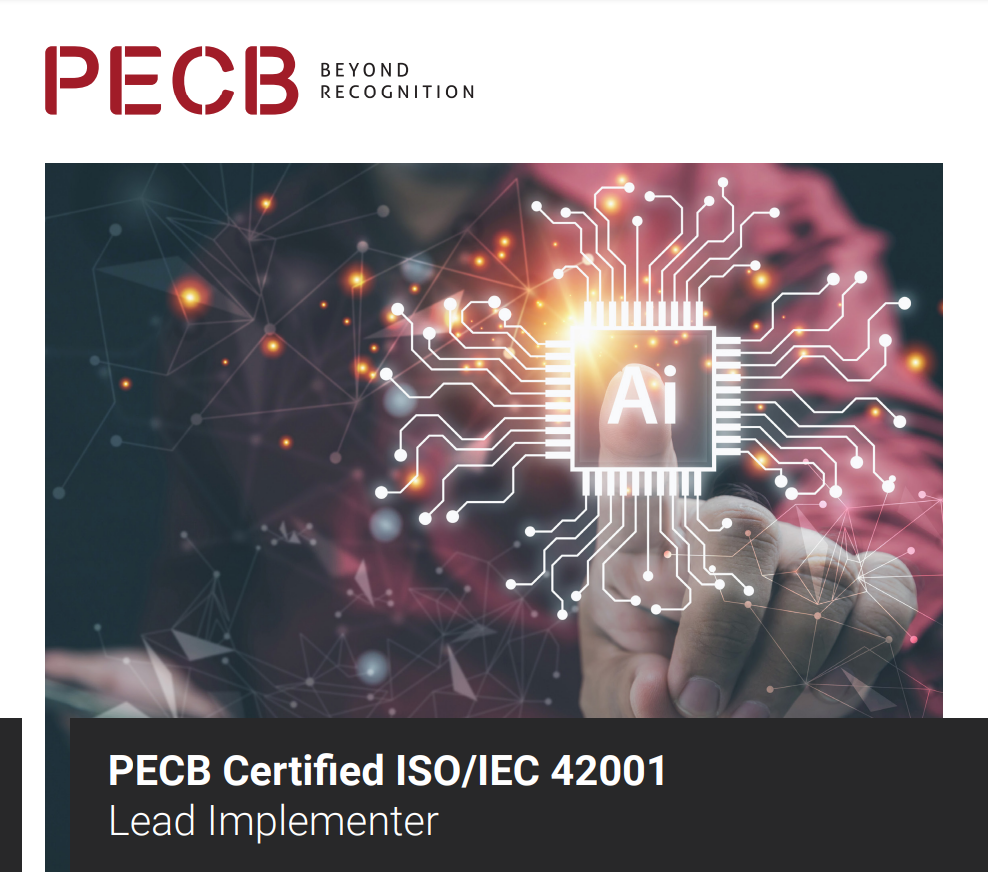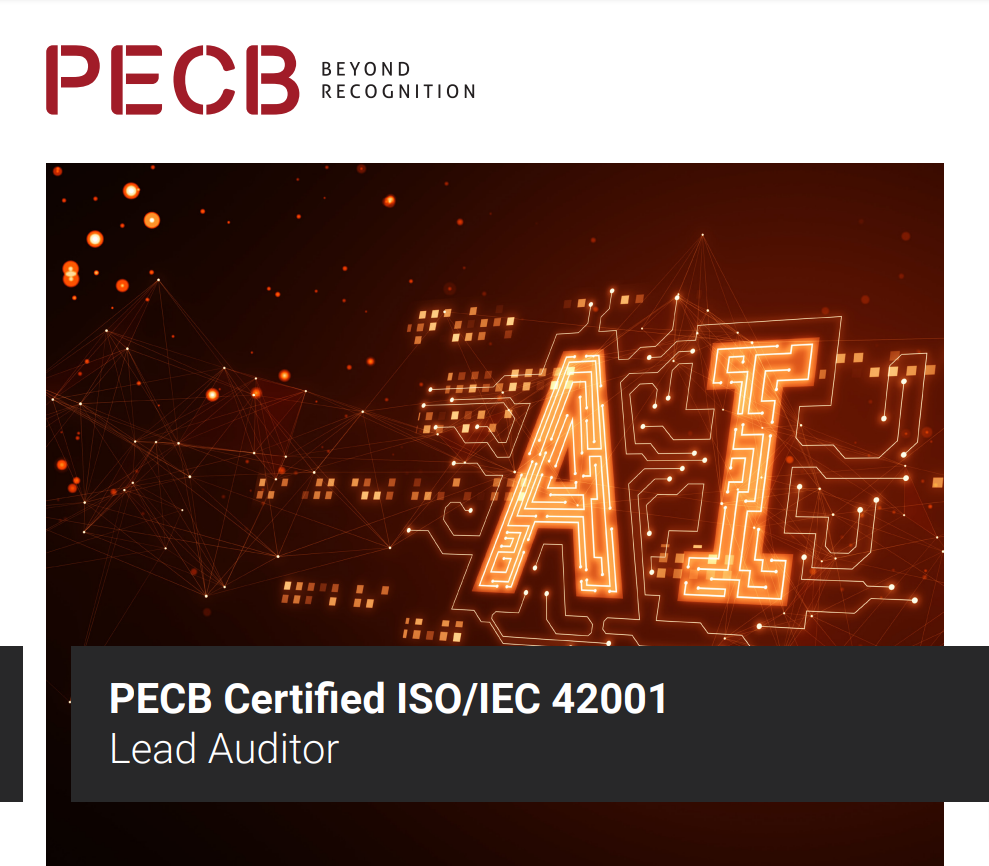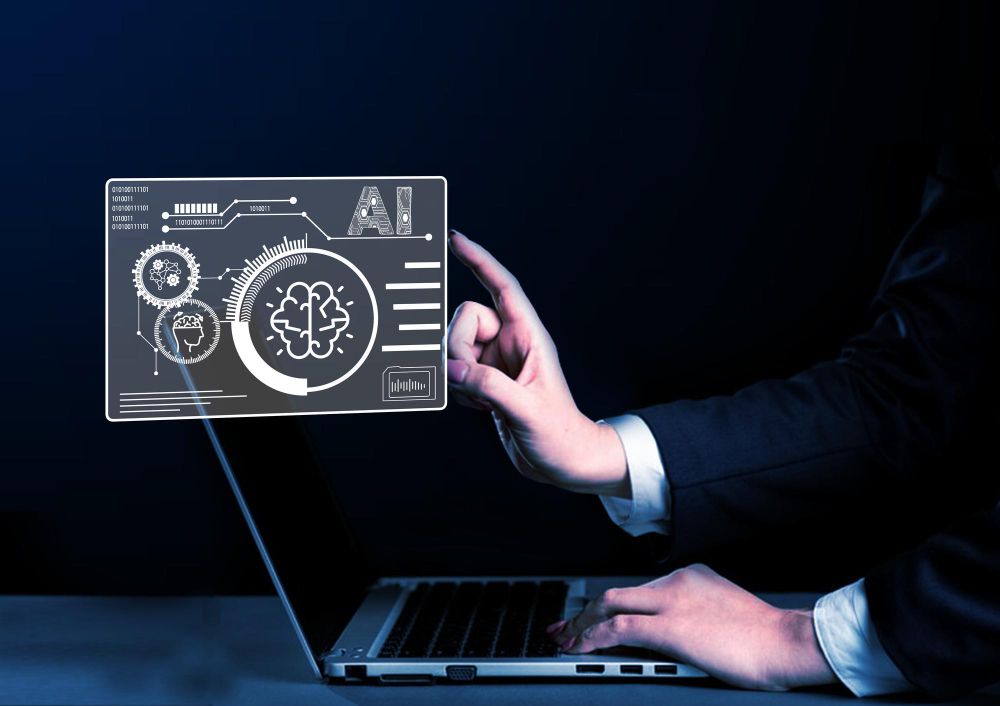ISO/IEC 42001 artificial intelligence (AI) certification - Navigating the journey
8 minutes read
Artificial Intelligence (AI) is revolutionizing business operations, offering immense potential for automation, efficiency gains, and enhanced customer experiences. As AI is expected to be a key economic driver, transforming industries and sectors, businesses must address critical questions around accountability, transparency, and ethical considerations, including ensuring fair and unbiased decisions, secure data handling, and preventing harmful biases.
To address these concerns, organizations must prioritize responsible AI management (1). This requires implementing frameworks and standards that promote ethical AI development(2), deployment, and maintenance. The International Organization for Standardization / International Electrotechnical Commission (ISO/IEC) has developed ISO/IEC 42001, the first international standard providing guidance for responsible AI use.
This blog post will examine the significance of ISO/IEC 42001 in promoting responsible AI practices, discussing its advantages, potential challenges, and implementation strategies.
Responsible AI Management with ISO/IEC 42001
ISO/IEC 42001 provides a comprehensive framework for responsible AI management. It empowers organizations to establish, implement, and maintain an AI management system (AIMS) to ensure the ethical use, development, monitoring, and provision of AI-powered products and services.
The standard addresses key considerations in AI management, including:
- Transparent decision-making processes.
- The use of data analysis and machine learning to develop and deploy AI systems.
- The need for ongoing monitoring and adaptation as AI systems continuously learn and evolve.
By adopting ISO/IEC 42001, organizations can demonstrate their commitment to responsible AI management and ensure that their AI systems are aligned with their values and principles.
Core Components of the ISO 42001 Standard
The ISO 42001 standard is built on four key components essential for managing AI effectively:
- AI Management Systems (AIMS): Integration of organization’s processes, frameworks, policies, and procedures tailored for managing AI applications, to ensure continuous improvement and alignment with other management system standards
- AI Risk Assessment: A systematic approach to identifying, assessing, and mitigating risks throughout the AI lifecycle.
- AI Impact Assessment: Evaluation of the potential effects of AI systems on stakeholders, encompassing technical, ethical, societal, and environmental considerations.
- Data Protection and AI Security: Robust measures to ensure compliance with security and privacy laws and safeguard AI systems against evolving threats.
Key Principles of Trustworthy AI
The following key principles are essential for understanding ISO/IEC 42001 compliance:

By understanding and implementing these key principles, organizations can ensure responsible AI deployment and maintain compliance with ISO/IEC 42001.
Implementation Process
Implementing ISO/IEC 42001 compliance within an organization requires a structured approach. Here is a step-by-step guide to for compliance:

Additional Tips for Successful Implementation
- Engage stakeholders and establish clear roles and responsibilities
- Provide training and awareness programs for employees
- Continuously monitor and address potential risks and impacts
- Foster a culture of transparency and accountability
- Leverage technology and tools to streamline processes
- Encourage collaboration and knowledge sharing across departments
- Establish a continuous improvement mindset
By following this step-by-step guide and considering these additional tips, organizations can ensure a successful ISO/IEC 42001 implementation and demonstrate their commitment to responsible AI management.
Benefits and Competitive Advantage
ISO/IEC 42001 certification offers a wide range of benefits for organizations, enhancing their credibility, competitiveness, and social responsibility.
- Demonstrated Responsibility: ISO/IEC 42001 certification showcases an organization's commitment to responsible AI deployment, building trust among stakeholders.
- Informed Decision-Making: By adhering to ISO/IEC 42001 standards, organizations can make strategic decisions about AI implementation, aligning with clear objectives and governance frameworks.
- Competitive Edge: Certification enhances customer confidence and provides a significant competitive advantage, opening doors to new business opportunities and collaborations.
- Sustainable Practices: ISO/IEC 42001 certification contributes to the UN Sustainable Development Goals, highlighting an organization's commitment to sustainable and socially responsible AI practices.
Gaining a Competitive Advantage
By implementing ISO/IEC 42001, organizations can differentiate themselves from competitors, streamline AI processes, and reduce potential risks. This leads to cost savings, improved efficiency, and enhanced reputation.
Clear Roles and Responsibilities
Successful ISO/IEC 42001 implementation requires defined roles and responsibilities, promoting accountability and collaboration across departments and teams. This includes aligning AI initiatives with core business objectives, developing an AI management system, and evaluating AI performance.
Challenges and other considerations
ISO/IEC 42001 compliance poses several challenges, including:
- Data security and privacy risks
- Bias and ethical concerns
- Reliability and accuracy issues
- Legal and compliance complexities
Who Benefits from ISO/IEC 42001
This standard is crucial for:
- Organizations using, developing, or providing AI-powered products or services
- Professionals with AI, management systems, and sector regulatory compliance knowledge
- Those seeking certification in AI management and compliance
Is ISO/IEC 42001 Mandatory?
ISO/IEC 42001 is not mandatory, but it provides a comprehensive framework for responsible AI management. Organizations that adopt this standard can demonstrate compliance with legal and regulatory requirements, enhancing trust with customers, stakeholders, and the public.
Opportunities for Certified ISO/IEC 42001 Professionals
Obtaining an ISO/IEC 42001 certification can open doors to new career opportunities and enhance your professional reputation. As a certified professional, you will possess the skills and knowledge to:
- Navigate complex regulatory and ethical considerations surrounding AI implementation
- Align AI initiatives with organizational objectives
- Develop and implement effective AI management systems
- Evaluate and ensure the quality, reliability, and performance of AI systems
- Identify and mitigate AI-related risks
- Utilize AI responsibly and with accountability
- Consider data and AI system quality, security, safety, justice, and transparency throughout the entire life cycle
- Demonstrate strategic decision-making in AI implementation
- Showcase effective governance and balance innovation with responsibility
With this certification, you will be equipped to support organizations in implementing ISO/IEC 42001 and ensuring the responsible use of AI. You will have the expertise to integrate critical frameworks and experience, enabling you to succeed in AI management and implementation.
Conclusion
As we look to the future of AI, it's clear that responsible management is crucial for unlocking its full potential. ISO/IEC 42001 provides a comprehensive framework for organizations to achieve this goal. By prioritizing transparency, accountability, and ethical considerations, we can build trust, drive innovation, and create a better future for all. The journey to certification is just the beginning – it's a commitment to continuous improvement, learning, and responsible AI practices that will shape the future of our organizations and society as a whole.
For more information
ISO/IEC 42001 Lead Implementer - Artificial Intelligence Management System
 Learn More
Learn MoreSelf-study certification course. Certification and examination fees are included in the price of the training course.
ISO/IEC 42001 Lead Auditor - Artificial Intelligence Management System
 Learn More
Learn MoreSelf-study certification course. Certification and examination fees are included in the price of the training course.
1. Responsible AI management refers to the practices and policies that ensure AI systems are aligned with human values and societal norms.
2. Ethical AI development involves designing and training AI systems that are fair, transparent, and accountable.
Share this article











